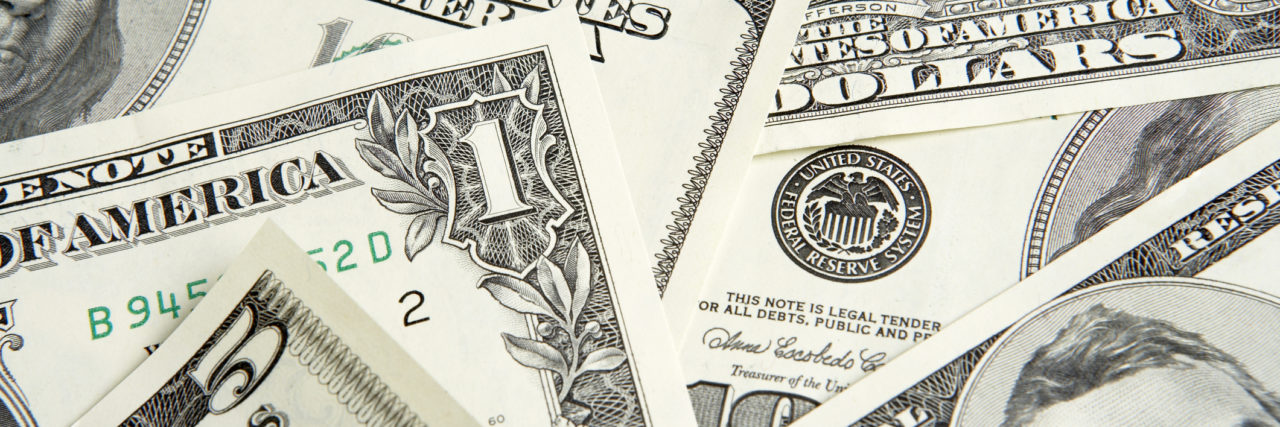I don’t know any rich people with bipolar disorder, aside from the celebrities who struggle with it and go public. There may be some out there — there must be, statistically — but I don’t know any of them. I’m relatively well off — home, car, most bills paid, work — but even I live paycheck to paycheck. And have lived no-paycheck-to-no-paycheck in the past.
• What is Bipolar disorder?
Let’s face it, having bipolar is expensive. And not conducive to making money. Here are some of the hurdles I’ve noticed.
1. Insurance.
The biggie. Right now I have insurance and, thanks to the Affordable Care Act (Obamacare), it covers mental health conditions. My previous insurance, which was more expensive, crappier and came through my husband’s employment, did too, but not nearly as well.
So, I’m covered, but not all my doctors take my brand of insurance. Some of them will accept reduced fees (if you ask) or have a special self-pay rate. But even that doesn’t always help much. My previous psychiatrist charged me $95 and my current one $75 — and those are just for 15 minute med checks, not full 50 minute sessions. My therapist accepted $30 for that, so I was lucky, but had no official insurance document stating she had to give me that rate.
2. Medication.
The other biggie. I am currently on four or five psychotropic medications, depending on how you count (and no, you don’t need to know what they are). One of them — you can probably guess which one — cost $800 per month when it was first prescribed to me. I got a coupon from GoodRx.com that brought it down to around $200 per month which was, if not exactly reasonable, more doable. Finally, a generic came out and the ACA kicked in, and I get the drug for $45 per month now. That would have seemed high at one time, but now sounds comparatively reasonable. But if you’re on a fixed income, watch out. Fixed income and no insurance, you’re screwed.
3. Social Security Disability (SSDI).
Which brings us to the topic of disability — the “safety net” that’s supposed to catch those of us who are so disabled by our mental (or physical) conditions that we’re unable to work. Good luck getting it. Most people who apply are rejected, sometimes more than once. Practically speaking, you need a lawyer to navigate the shoals for you, and one who works on contingency at that. The hoops and red tape are massive. If you’ve got depression, to pick just one example, cutting through and jumping through may be beyond your capabilities. You’d think they planned it that way, just to cut down on the number of claims they have to pay.
Mental illnesses are particularly difficult to get SSDI for. They’re “invisible illnesses.” When and if you do get approved, the monthly payment is meager and fixed (see above), unless there is a cost of living raise which, given the current economy and political leadership, is increasingly unlikely.
4. Bipolarity.
Then there’s the disorder itself. Anyone with mania can probably tell you about the sometimes-ruinous spending sprees that accompany racing moods. Hell, I only get hypomania and I’ve got five custom-made dresses in my closet that I’ve never worn and now can’t because of weight gain from my psychotropics.
You’d think depression would not have much effect on your spending. But it does have a profound effect on your income. Some people with bipolar depression who can work part-time or from home are lucky. Others not so much. There was a period of several years when I was unable to work at all, and we ran through our savings and retirement accounts rapidly. My husband could still work, but one income quickly became insufficient to meet the bills (fortunately, my bipolar depression lifted enough that I’m now able to do part-time, at-home, freelance gigs, which are about as unstable as I am).
5. Retirement.
For me this means no Individual Retirement Accounts (IRA) left. No savings. That means Social Security, delayed as long as possible, and the aforementioned fixed income. Basically, I can never retire. I can’t afford to.
Frankly, I can’t see any of this changing anyways soon. Money trouble is often one of those things you have to deal with along with your mental disorder. And there’s nothing like stress to make your symptoms worse.
Thinkstock photo via Bananastock.

